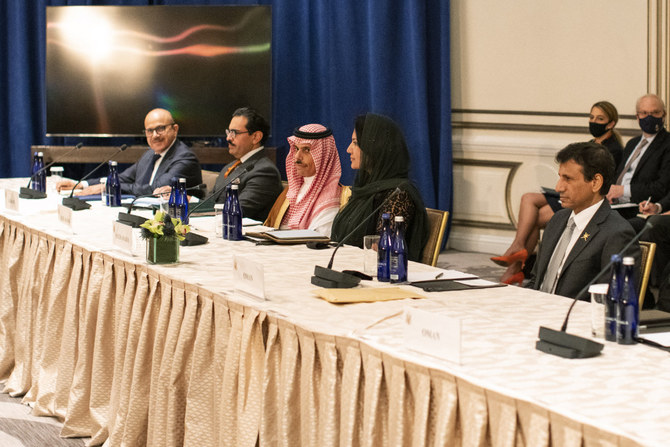
- ARAB NEWS
- 20 Apr 2024

President Joe Biden is traveling to Jeddah at a time of unprecedented regional cohesion and coordination, offering hope for fresh advances on peace and stabilization efforts in a part of the world that has known too much strife and conflict.
During his visit, an American commander-in-chief will, for the first time in several years, meet a unified Gulf Cooperation Council, led by Saudi Arabia and incorporating almost all of the major countries of the Middle East. In addition to the GCC leaders, the heads of government of Jordan, Egypt and Iraq will also attend.
The summit, convened by King Salman, will not lack for agenda items. They will include the urgent need to extend the truce in Yemen and forge stronger policies to repel Iranian proxy forces, as well as opportunities to breathe new life into Middle East peace efforts and build on the progress of the Abraham Accords by finding new forms of cooperation between Israel and the Arab states.
Although concrete progress may prove difficult on some of the issues, the very fact that Biden is meeting with the GCC in its entirety expands the space for what is possible. Just a couple of years ago, the ability to engage the region as a strong and unified whole would have been impossible.
The council was established in 1981 and has a long record of meaningful coordination and achievements — not just on security matters, but on common markets, the reduction of trade barriers and investments in regional infrastructure. But after the upheaval and chaos of the Arab Spring, its members diverged on foreign policy. Tensions then escalated in 2017 with the GCC crisis involving Qatar.
But by early 2021, the region’s leaders were able to put disagreements behind them and coalesce around a vision that prioritized the needs of all Gulf residents. The Kingdom coordinated with the UAE, Egypt and Bahrain to reestablish diplomatic ties with Qatar. And thanks in large part to the leadership and spirit of reconciliation personified by King Salman and Crown Prince Mohammed bin Salman, as well as Emir Tamim bin Hamad Al-Thani, they were able to relegate the traumatic rift to the past.
Just a couple of years ago, the ability to engage the region as a strong and unified whole would have been impossible.
Rabbi Marc Schneier
From the US perspective, having a clear partner with which to further American economic and security objectives is a gift of huge economic and geostrategic proportions. Together, these countries produce half of the world’s crude oil. They face similar threats via transnational terrorist organizations such as Al-Qaeda and Daesh and the potential peril of a nuclear-armed Iran. Their importance has only grown amid the security and energy dilemmas posed by Russia’s invasion of Ukraine.
Gulf unity, backed by a steadfast ally in the US, makes all greater than the sum of their parts. And their partnership can have positive ripple effects throughout the region, especially when considering the range of American priorities at stake.
One major US focus will always be Israeli security and the comments made by some regional leaders about potentially including Israel in the Gulf’s circle of partnership only magnifies the importance of the council as the preeminent regional formation for unity and security coordination.
Bringing Israel and the Gulf under one roof, so to speak, would be beneficial to both as well as the US. Israel is a technological powerhouse with some of the world’s best defense and intelligence capabilities. It can help shore up Gulf defenses and prevent Iran and other bad actors from finding the weakest pillars in the region’s security architecture. And the economic effects of integration would be plentiful.
Gulf countries already have a model for how to end old divides. During the worst days of the Gulf crisis, I always focused on maintaining strong ties with both Qatar and its Gulf neighbors. It was obvious to me that all of the countries of the region were better off working together to overcome their differences and seize common opportunities.
They are now experiencing the fruit of such cooperation. The Abraham Accords may be limited to the UAE and Bahrain for now, but they are inspiring governments across the region to rethink their approach to promoting peace. Likewise, Qatar will be in the global spotlight later this year when it hosts the FIFA World Cup, the biggest sporting event ever held on the Arabian Peninsula. The whole region will celebrate the joy of this competition.
President Biden’s visit to Saudi Arabia should evoke a similar sense of regional pride and significance. Economic integration and security may be top of the agenda, but expanding the realm of peace, tolerance and understanding should never be far behind. They have done it among themselves already. Now it is time to think bigger.